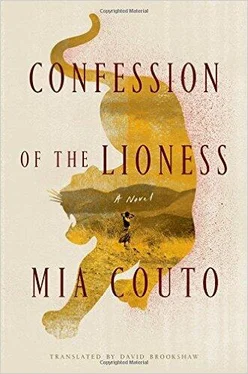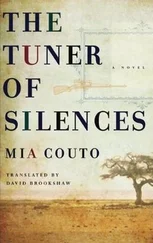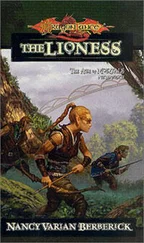At home, only Silência rejoiced in my return. My mother was sifting rice and looked up unenthusiastically. I was the one who spoke after a long silence:
Grandfather says it’s my birthday today.
Grandfather invents calendars. That’s why he hasn’t died yet.
Whatever the day, it’s good to be back. To be back now that we’ve got peace …
Without averting her gaze from her sifting, Hanifa Assulua mumbled in an undertone. I was talking of peace? What peace?
Maybe for them, the men , she said. Because we women still wake up every morning to a timeworn, endless war.
Hanifa Assulua was in no doubt as to the condition of women in Kulumani. We awoke in the early morning like sleep-deprived soldiers and we got through the day as if life were our enemy. We would come home at night without anyone to comfort us over the battles that we had to face. Mother recited this litany of complaints in one breath, as if it were something she had been waiting a long time to say.
That’s why you should have left all this talk about peace back at the mission, dear daughter. During the time you lived there, we had to survive here.
She was accusing me. As if I were the one to blame for her solitude and the unhappiness of all the women. I retreated down the hall with the small steps of a prisoner returning to her cell.
The Hunter’s Diary: FOUR. Rituals and Ambushes
Where men can be gods, animals can be men.
— THE WRITER’S NOTEBOOKS
Hanifa comes to call me in the middle of the night. She is so terrified that I rush off after her without changing clothes. With a long nightgown hiding my knees, I look like a clumsy ghost.
The lions have reached my house.
They’d been prowling around the village ever since nightfall. Hanifa had heard them in the distance.
I didn’t hear anything , I confess.
The woman has no doubts. There are three of them and they’re making for the village. We wouldn’t hear them again. The closer they get, the more careful they become. I pick up my gun and step out into the garden, gauging the darkness and the silence. Hanifa follows me. The writer, gripped by terror, brings up the rear. In no time at all, we are standing in the Mpepes’ yard.
Don’t switch on your flashlight, sir , the woman whispers to the writer.
So how am I going to see where I’m going? Gustavo asks.
Be quiet, the pair of you! And you, Hanifa, go and get Genito immediately! I order.
He’s sleeping.
Suddenly Hanifa points at some bushes which are stirring and urges me:
Fire, it’s the lions! Fire!
My forefinger on the trigger grows taut. In the arch of bone and nerve lies the decision of the gods: whether or not to extinguish a life in a bolt of lightning. But in this case, my quivering finger hesitates. It’s a lucky delay: A figure emerges from the shadows, hands raised like a drunken scarecrow.
Don’t shoot, it’s me, Genito!
The tracker had gone to buy some liquor in the nearby village. He raises the bottle as proof.
Now go inside, Hanifa. You know I don’t want you out here at night.
Your wife went to call us , the writer explains, because she seemed to think there were lions in the neighborhood.
The tracker looks at the bush from which he has just emerged. He shakes his head, raises the bottle to his lips, and takes a generous swig. He makes sure his wife has gone back into the house. He sits down on the ground and invites us to drink with him. Neither of us accepts. We stand there looking at the stars until Genito breaks the silence.
Hanifa knew it was me. She knew I was on my way home.
I don’t understand , says Gustavo.
Do you know what happened here? It was an ambush. Hanifa wants to kill me.
Don’t be so absurd …
She thinks I’m guilty of terrible things.
What things?
Our things. You know something? There’s no law here, no government, and even God only visits us occasionally.
* * *
When I get back to my room, I remove the cartridges from the chamber of my rifle and repeatedly press the trigger. I’m still trembling slightly, but in general my body obeys me immediately. As always, I take time to reconcile myself to sleep. Staring fixedly at the ceiling, I once again picture my last visit to the psychiatric hospital. I can’t get Roland’s farewell out of my mind — his long hands gain wings and flutter blindly around the room. I spend some time like this. As they say in Kulumani, night only ends when the owls fall silent. Without the presence of these birds, night loses its ceiling. And there are those who, without even being aware, scare these birds of omen away. We have these owl chasers to thank for every new break of day. There at the other end of this remoteness, Roland’s hands shape each of my sleepless nights.
* * *
First thing in the morning, the administrator bursts hurriedly and furtively into our living quarters as if he were being chased by lions. He glances at the street before shutting the door, wipes his forehead with a handkerchief, and then collapses on the black imitation leather sofa.
My wife mustn’t see me here. She’s becoming impossible, that woman!
The man is quick to explain himself. He feared we might have got a false impression of what had come out of the meeting in the shitala . What had been evident from the meeting was envy. The cancer of our society, as he put it. It was precisely this cancer that had led to the recent dismissal of one of his aides in the administration. The career of a veteran official of the party, one Simon Mutapa, had been summarily destroyed.
Don’t you want to put the ventilation on? I’ve got the generator connected up, and the company delivered more fuel …
He points over in our direction at a noisy fan. We stand there for some time glancing at each other, waiting for the administrator to catch his breath. Then, once again, he sets off talking, and explains that, prior to our arrival, the people had invented guilty parties for tragic occurrences.
They blamed Simon Mutapa for this curse of the lions.
Rumors were spread around the village that the Mutapa family had invisible powers. It was in Simon’s house that lions were made. Logical explanation had been of little use, just as a commission of inquiry sent by the provincial administration had been of little use. Mutapa opened up his house and his private life in order to prove his innocence. They had searched his home, his garden, his work place. They hadn’t found any mintela , any material that might have been used to create a lion. But they were adamant that he was the fabricator of lions.
So what do these mintela consist of? the writer wants to know.
In the old days, mintela were merely roots, the bark of trees, bones. Nowadays magic artifacts include the waste products of modern urban life: acid from car batteries, old cell phone casings, computer keyboards.
There must have been a reason for so much suspicion , Gustavo insists.
There was only one basis for their suspicion: The Mutapas had accumulated wealth. For any one of us, the assets of that particular official were sparse, almost invisible. A few acres of sugarcane, one or two banana trees, and a still, where his daughters produced lipa . But for the villagers, his affluence was vast and without explanation. In a place where no one can be anything, Simon Mutapa ended up getting noticed. His neighbors were outraged. And neighbors are like medicine: They’re very good, but only turn up when there’s an illness. Accused of “making” lions, Simon was beaten and threatened with death. The following day, he and his family hit the road and disappeared.
Читать дальше












